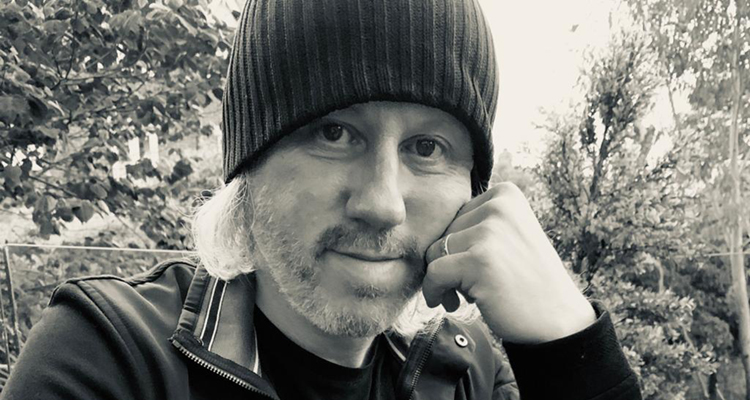Tracks (1)
LAST PLAYED ON EIREWAVE:
Something to Talk About

Badly Drawn Boy emerges as a self-sustaining musical craftsman, born Damon Gough on October 2, 1969, in the town of Dunstable, Bedfordshire. However, destiny swiftly steered his family back to their roots in Bolton, Lancashire before Gough marked his first year of existence. The genesis of his moniker harks back to a character within the animated series "Sam and His Magic Ball," an encounter he had while attending a soirée in Trafford, Manchester during the year 1995. Antecedent to adopting this epithet, Gough conjured a series of unique 'business cards,' adorned with his nephew's illustrated artwork, complemented by Gough's own skillful collage. These tactile creations, encased in laminate, became tokens of camaraderie, dispersed amongst acquaintances and revellers within the domains of Blackburn and Manchester's nocturnal scene.
In the year 2000, Gough's magnum opus titled "The Hour of Bewilderbeast" clinched the illustrious Mercury Prize, cementing his musical prowess. His artistic versatility extended to the realm of cinema as he orchestrated the melodic tapestry for the silver screen endeavor "About A Boy," a cinematic adaptation of Nick Hornby's eponymous literary work, prominently featuring Hugh Grant. The year 2002 witnessed the unveiling of his third auditory masterpiece, christened "Have You Fed The Fish?," a testament to his evolving sonic dexterity.
Progressing along his musical odyssey, Gough's fourth opus, "One Plus One Is One," graced the auditory landscape in the year 2004. "Born in the U.K.," his fifth symphonic creation, reverberated on October 16, 2006, paying homage to one of his luminous influences, the venerable Bruce Springsteen.
The dawning of November 2009 ushered forth an exciting proclamation via the Badly Drawn Boy website, intimating Gough's active engagement within a recording sanctum, meticulously finessing a tantalizing new endeavor poised to grace the auditory realms imminently. This sonic creation, unveiled as "Is There Nothing We Could Do?," drew inspiration from and resonated with the motion picture "The Fattest Man in Britain," weaving a harmonious synergy between music and cinema.